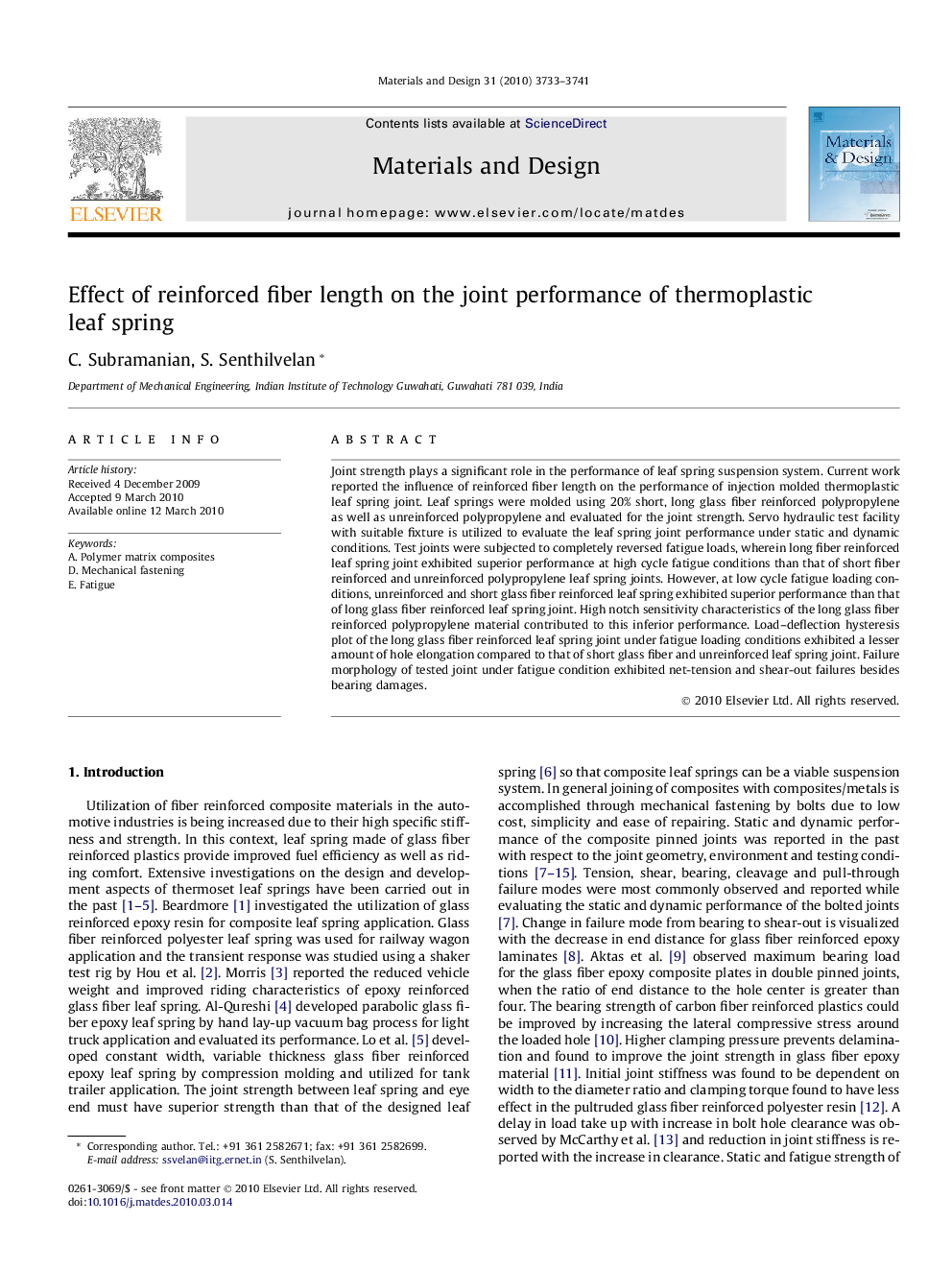| Article ID | Journal | Published Year | Pages | File Type |
|---|---|---|---|---|
| 831887 | Materials & Design (1980-2015) | 2010 | 9 Pages |
Joint strength plays a significant role in the performance of leaf spring suspension system. Current work reported the influence of reinforced fiber length on the performance of injection molded thermoplastic leaf spring joint. Leaf springs were molded using 20% short, long glass fiber reinforced polypropylene as well as unreinforced polypropylene and evaluated for the joint strength. Servo hydraulic test facility with suitable fixture is utilized to evaluate the leaf spring joint performance under static and dynamic conditions. Test joints were subjected to completely reversed fatigue loads, wherein long fiber reinforced leaf spring joint exhibited superior performance at high cycle fatigue conditions than that of short fiber reinforced and unreinforced polypropylene leaf spring joints. However, at low cycle fatigue loading conditions, unreinforced and short glass fiber reinforced leaf spring exhibited superior performance than that of long glass fiber reinforced leaf spring joint. High notch sensitivity characteristics of the long glass fiber reinforced polypropylene material contributed to this inferior performance. Load–deflection hysteresis plot of the long glass fiber reinforced leaf spring joint under fatigue loading conditions exhibited a lesser amount of hole elongation compared to that of short glass fiber and unreinforced leaf spring joint. Failure morphology of tested joint under fatigue condition exhibited net-tension and shear-out failures besides bearing damages.
